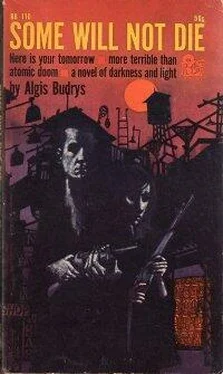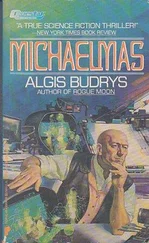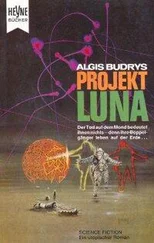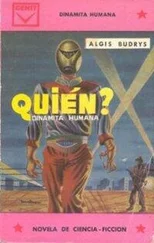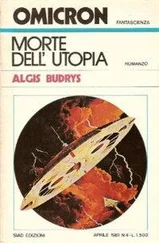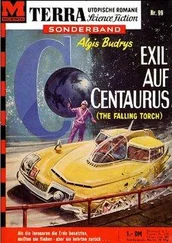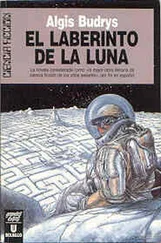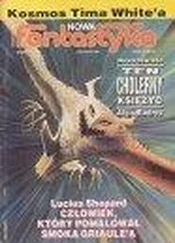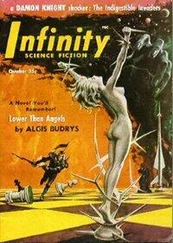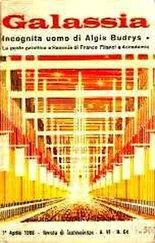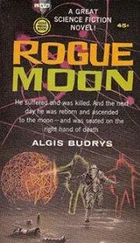Algis Budrys - Some Will Not Die
Здесь есть возможность читать онлайн «Algis Budrys - Some Will Not Die» весь текст электронной книги совершенно бесплатно (целиком полную версию без сокращений). В некоторых случаях можно слушать аудио, скачать через торрент в формате fb2 и присутствует краткое содержание. Год выпуска: 1961, Издательство: Regency Books, Жанр: Фантастика и фэнтези, на английском языке. Описание произведения, (предисловие) а так же отзывы посетителей доступны на портале библиотеки ЛибКат.
- Название:Some Will Not Die
- Автор:
- Издательство:Regency Books
- Жанр:
- Год:1961
- ISBN:нет данных
- Рейтинг книги:4 / 5. Голосов: 1
-
Избранное:Добавить в избранное
- Отзывы:
-
Ваша оценка:
- 80
- 1
- 2
- 3
- 4
- 5
Some Will Not Die: краткое содержание, описание и аннотация
Предлагаем к чтению аннотацию, описание, краткое содержание или предисловие (зависит от того, что написал сам автор книги «Some Will Not Die»). Если вы не нашли необходимую информацию о книге — напишите в комментариях, мы постараемся отыскать её.
Some Will Not Die — читать онлайн бесплатно полную книгу (весь текст) целиком
Ниже представлен текст книги, разбитый по страницам. Система сохранения места последней прочитанной страницы, позволяет с удобством читать онлайн бесплатно книгу «Some Will Not Die», без необходимости каждый раз заново искать на чём Вы остановились. Поставьте закладку, и сможете в любой момент перейти на страницу, на которой закончили чтение.
Интервал:
Закладка:
“You mean you’ve made us sitting ducks on purpose?”
“I mean if I was a bandit I wouldn’t talk to nothin’ but a sitting duck, and I’m under contract to let you talk to some bandits.”
“Not from a position of weakness!”
Custis looked up and grinned. “That’s life, Major. Honest, that’s the way life is.”
“There’s somebody,” Custis said at daybreak. He stepped away from the periscope eyepiece and let Henley take his look at the soldiery squatted on the rocks outside.
There were men all around the battlewagon, in plain sight, looking at it stolidly. They were in all kinds of uniforms, standardized only by black-and-yellow shoulder badges. Some of the uniforms dated two or three Republics back. All of them were ragged, and a few were completely unfamiliar. West Coast, maybe.
Or maybe even East.
The men on the rocks were making no moves. They waited motionless under the battlewagon’s guns. At first glance, the only arms they seemed to have were rifles that had to be practically smoothbores by now—and it had taken Custis a while to find out why these men, who looked like they’d known what they were doing, were trusting in muskets against a battlewagon. There were five two-man teams spread in a loose circle around the car. Each team had an rifle fitted with a grenade launcher. The men aiming them had them elevated just right to hit the car’s turtledeck with their first shots.
“Black-and-yellow,” Henley said angrily.
Custis shrugged. “No blue-and-silver, that’s true,” he answered, giving Henley the;needle again. “But that was thirty years ago. It might still be Berendtsen.”
Custis went back to the periscope eyepiece for another look at the grenadiers. Each of them had an open, lead-lined box beside him with more grenades in it.
Custis grunted. Napalm splashed pretty well, but it would take one full traverse of the turret to knock out all five teams. The turret took fifteen seconds to revolve 360 degrees, while a grenadier could pull a trigger and have a grenade lofting in, say, one second’s time. A few seconds later the grenade would have covered the outside of the car with radioactive dust that would make it death to stay inside, or death to get out. Nor could the battlewagon get out of the grenade’s way in time—the basis of an interdictory weapon like this was that it would be used as soon as you made the slightest move, but, you could believe, no sooner than that.
“Stalemate,” Custis grunted. “But no worse than that. Generous of ’em.” He unbuckled his web belt and took off his .45. He walked under the command hatch and unclogged it.
“What’re you doing?” Henley demanded.
“Starting.” He threw the hatch back and pulled himself up, getting a foothold on the saddle and climbing out on top of the turret. He flipped the hatch shut behind him and stood up.
“My name’s Custis,” he said carefully as the men raised their rifles. “Hired out to the Seventh Republic. I’ve got a man here who wants to talk to your boss.”
There was no immediate answer. He stood and waited. He heard the hatch scrape beside him, and planted a boot on it before Henley could lift it.
“What about, Custis?” a voice asked from off to one side, out of range of his eyes. The voice was old and husky, kept in tight check. Custis wondered if it might not tremble, were the old man to let it.
He weighed his answer. There was no sense to playing around. Maybe he was going to get himself killed right now, and maybe he wasn’t, but if he played games here he might never get a straight answer to anything.
“Theodore Berendtsen,” he said. “About him.”
The name dropped into these men like a stone. He saw their faces go tight, and he saw heads jerk involuntarily. Well, the British had stood guard over Napoleon’s grave for nineteen years.
“Turn this way, Custis,” the same worn voice said.
Custis risked taking his eyes off the grenadiers. He turned toward the voice.
Standing a bit apart from his troops was a thin, weather-burned man with sharp eyes hooded under thick white eyebrows. He needed a shave badly. His marble-white hair was shaggy. There were deep creases in his face, pouches under his eyes, and a dry wattle of skin under his jaw.
“I’m the commander here,” he said in his halting voice. “Bring out your man.”
Custis stepped off the hatch and let Henley come out. The political officer gave him a savage look as he squirmed up and got to his feet. Custis ignored it. “Over there—the white-haired one,” he said without moving his lips. “He’s the local boss.” He stepped a little to one side and gave Henley room to stand on the sloping turret top, but he kept watching the old commander, who was wearing a pair of faded black coveralls with that black-and-yellow shoulder badge.
Henley squinted up toward the thin figure. The back of his neck was damp, even in the chill morning breeze, and he was nervous about his footing.
“I’m Major Thomas Henley,” he finally said, “direct representative of the Seventh North American Republic.” Then he stopped, obviously unable to think of what to say next. Custis realized, with a flat grin, that his coming out cold with Berendtsen’s name hadn’t left the major much room to work in.
“You’re out of your country’s jurisdiction, Major,” the commander said.
“That’s a matter of opinion.”
“That’s a matter of fact,” the commander said flatly. “You and Custis can come down. I’ll talk to you. Leave the rest of your men here.”
Henley’s head turned quickly. “Should we go with him?” he muttered to Custis.
“Lord, Major, don’t ask me! But if you’re plannin’ to get anywhere, you better talk to somebody. Or do you expect Berendtsen to plop down in your lap?”
Henley looked back at the thin figure on the hillside. “Maybe he already has.”
Custis looked at him steadily. “They shot Berendtsen in New York City thirty years ago. They threw what was left of his body on a garbage heap. And a year later there was a tomb over where they threw it.”
“Maybe, Captain. Maybe. Were you there?”
“Were you?”
Custis felt annoyed at himself for getting so exercised about it. He glared at the major. Then his common sense came trickling back, and he turned away to give Lew his orders about keeping the car sealed and the guns ready until he and Henley got back.
Thirty years dead, Berendtsen was. Judged for treason, condemned, killed—and men still quarreled at the mention of his name. Custis shook his head and took another look at the old, dried-out man on the hill, wearing those patched, threadbare coveralls.
Most of the commander’s men stayed behind, dispersed among the rocks around the silent battlewagon. Ten of them formed up in a loose party around the commander and Henley, and Custis walked along a few yards behind the two men as they started off into the mountains.
It was turning into a bright but cool day. Looking up into the west, Custis could see the mountaintops pluming as high altitude gales swept their snow caps out in banners. The track they were walking on wound among boulders higher than Custis’s head, and he felt vaguely uncomfortable. He was used to the sweeping plains where his father had raised him; where, except for the spindly trees along the sparse creeks, nothing stood taller than a man.
The commander’s base was a group of low, one room huts strung out along the foot of a butte, with a cook-fire pit in front of each one. Their outlines were broken by rocks and boulders piled around them. There were prepared slit-trenches spotted around the area, two machinegun pits covering the approach trail, and a few mortar batteries sited on reverse slopes. From the size of the place and the depth of the organization, Custis judged the commander had about four hundred people in his outfit.
Читать дальшеИнтервал:
Закладка:
Похожие книги на «Some Will Not Die»
Представляем Вашему вниманию похожие книги на «Some Will Not Die» списком для выбора. Мы отобрали схожую по названию и смыслу литературу в надежде предоставить читателям больше вариантов отыскать новые, интересные, ещё непрочитанные произведения.
Обсуждение, отзывы о книге «Some Will Not Die» и просто собственные мнения читателей. Оставьте ваши комментарии, напишите, что Вы думаете о произведении, его смысле или главных героях. Укажите что конкретно понравилось, а что нет, и почему Вы так считаете.
